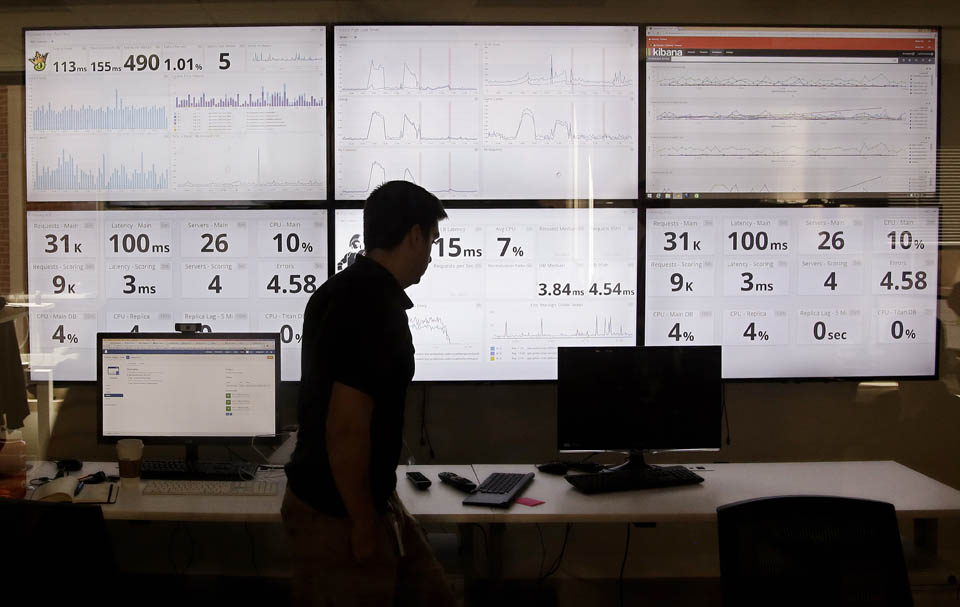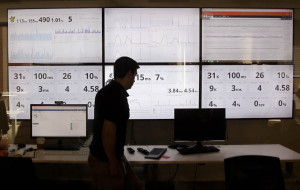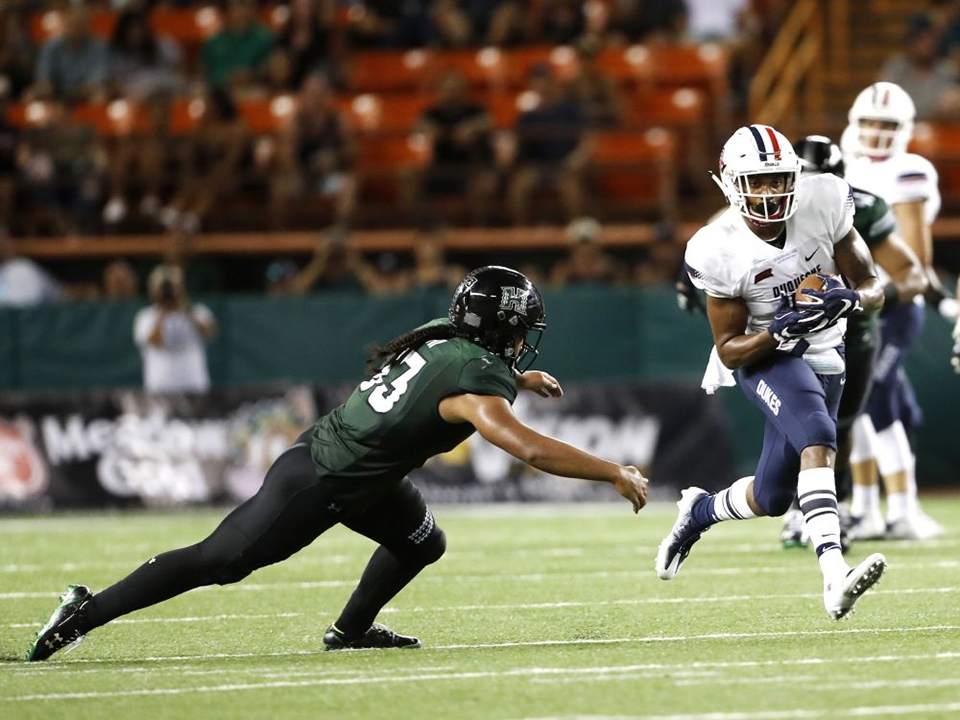

In this Sept. 9, 2015 file photo, an employee in the software development department of DraftKings, a daily fantasy sports company, walks past screens displaying the company’s online system stats in Boston.
By Raymond Arke | The Duquesne Duke
Online fantasy sports websites like Draftkings and FanDuel — which are very popular among college students — will probably stick around for decades to come, according to a Duquesne law professor.
Jay K. Reisinger, adjunct law professor and practicing sports law attorney, said he thinks the industry will overcome its current obstacles, including a recent federal investigation into possible insider trading.
“At the end of the day, I think people will be able to keep playing,” Reisinger said.
The premise of the websites is that users pay money to virtually “draft” various real-life sports players to place on digital teams. The goal is to pick up players who will compete well in real life, because those statistics carry over into the virtual games.
Sports law experts have recently questioned the validity of these sites, saying that they’re no different than the online gambling sites that were banned in 2006.
As the usership grows, articles from the New York Times investigating possible insider trading within the fantasy sports world have sparked investigations by federal investigators and several state District Attorneys.
The accusations suggest employees of the sites are using their logarithms to win big money on the competitor sites, fueling a debate over their legality.
According to The New York Times, in an article from Oct. 11, the employees using the insider information made more off of daily fantasy games than from their actual paychecks. In particular, Ethan Haskell, a DraftKings employee, released information from his company before it was supposed to go public, and then won $350,000 on FanDuel. An independent investigation found that Haskell was not guilty of insider trading, which Reisinger said makes sense.
“The insider trading accusation was bunk from the beginning, because this guy was viewing data at his company, but playing at a different company with completely different data. That doesn’t fit the definition of insider trading,” Reisinger said.
While the insider trading accusations seem to be fading away, the fantasy sports industry is still facing heat on the state and national level for possible violations of the Unlawful Internet Gambling Enforcement Act of 2006.
According to Reisinger, the law banned online poker and was written and passed before fantasy sports became popular. FanDuel became a company in 2009, while DraftKings has only existed since 2012.
For fantasy sports websites to be banned under this law, attorneys must prove that they are actually gambling—something that many people dispute.
“Everyone is trying to answer: ‘Are these games of skill or games of chance?’” Reisinger said.
Fantasy sports are popular at Duquesne, and some students are worried about the uncertainty caused by the industry’s current upheaval.
Freshman business major Kellen Wisniewski has a DraftKings account, but said he stopped playing after he learned about the insider trading allegations.
“I think it should be regulated,” Wisniewski said. “You play this game without having the statistics the employees have … they’re making it unfair.”
Wisniewski said he spent about $100 and only earned $1 back in winnings.
However, he is reluctant to call it gambling.
“I would say it’s betting since you’re betting on who’s going to do well each week and hoping that others don’t do the same bet,” Wisniewski said.



